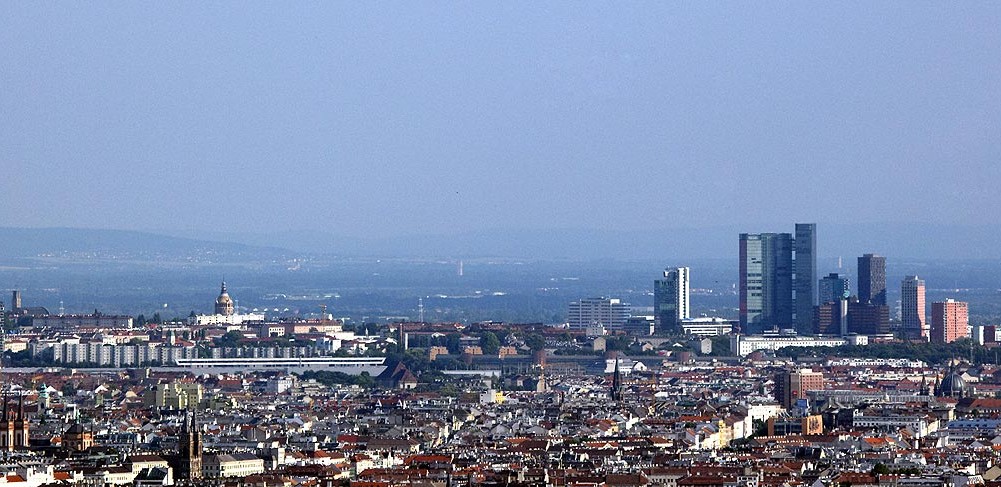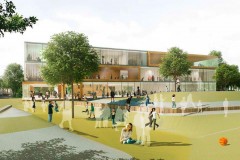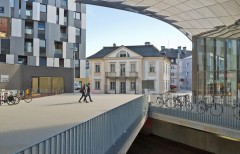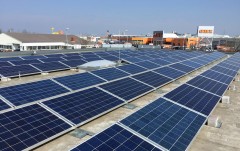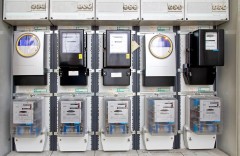According to UN forecasts we can expect a world population of nine billion people in 2050, 70 % of them in cities. Urban growth, globalization, demographic shifts and climate change present real challenges to the city of the future. Sustainable cities must combine climate protection and resource efficiency with quality of life and attractive conditions of work. However, urban areas also provide opportunities of implementing new approaches and strategies for a sustainable managing of energy and material resources. The concept “Smart City“ stands for comprehensive development strategies that include a wide range of technical, economic and social innovations for cities. A Smart City is characterized by intelligent system design, bringing together new technologies and services for buildings and infrastructure, producing and distributing energy, transport, industrial production and small-scale manufacturing.
The hallmark of the Smart City is the way in which the sectors energy, buildings, transport, urban planning and governance are linked together, so as to realize the potential available for ecological, economic and social improvement. Modern information and communication technologies with which the city’s technical systems and infrastructures can be controlled intelligently provide the basis for this. Here it is vital to integrate social aspects comprehensively and to provide ways for residents to participate.
Since late 2010 the Federal Ministry of Transport, Innovation and Technology (bmvit) and the Climate & Energy Fund have shared responsibility for developing new strategies, technologies and system solutions for sustainable cities – intended to enable people to live and work in energy-efficient, climate-friendly ways and to improve the quality of the location in question.
City of Tomorrow (bmvit)
The research and technology programme “City of Tomorrow“ builds on the results of the earlier programmes “Building of Tomorrow” and “Energy (systems) of Tomorrow“, and promotes research into and development of new technologies, technological subsystems and urban services for the city of the future. The focus is on buildings and urban energy systems, neighbourhoods, districts and the city in relation to its environs. Energy is the central issue here. New energy services, boosting energy efficiency and increasing the share of renewable sources of energy in urban areas are key topics. The process of transformation to a sustainable city is to be promoted by means of pioneering, intelligent energy solutions for buildings and districts.
Smart Cities Demo (Climate & Energy Fund)
The Climate and Energy Fund’s Smart-Cities-Initiative is intended to set up large-scale pilot projects in which mature technologies and strategies are applied and combined in interactive complete systems for the first time. The aim is to showcase the “Zero Emission City“ or “Zero Emission Urban Region“ by linking technical and social innovations and measures together in real life. Smart urban development depends on intelligent, interconnected, integrated answers to generating, distributing and consuming energy sustainably in urban areas. The city (urban region) is used as a testbed in which pioneering approaches can be tried out and evaluated in an exemplary way. When technical and social systems are treated as complementary, individual components and technologies can be improved by means of interaction and crosslinking.
International activities
In recent years research and technological development in the field of Smart Cities have been forced internationally – as part of the EU’s Strategic Energy Technology Plan (SET-Plan), for instance, or the European Innovation Partnership for smart cities and communities, and within the framework of the International Energy Agency’s technology programme. Here Austrian experts are actively involved in the IEA’s Energy in Buildings and Communities (EBC) Annex 63: “Implementation of Energy Strategies in Communities“, for example.
In 2010 coordinated by Austria the Joint Programming Initiative (JPI) Urban Europe, a transnational research programme which is currently uniting more than 20 countries, was launched to tackle fundamental systemic issues relevant to urban development. The aim here is to intensify transnational cooperation in the field of urban research and development, so as to generate attractive, sustainable, economically strong cities. The programme ERA-NET COFUND “Smart Cities and Communities“, which is supported by the EU Commission as part of Horizon 2020, is an initiative of JPI Urban Europe, linking 18 national and regional funding programmes for research and technology development together so as to carry out a transnational call for Smart Cities implementation projects (to run from 2016 to 2019). The focal points of the programme include tools and services for intelligent urban energy and transport systems, and developments in the field of big data/smart data. In this context a process has recently been started to initiate a joint call with China in the field of Smart Cities.
Building blocks for the Smart City
The topics “Active buildings”, “Heating and cooling grids“, “Intelligent power grids“, “Urban planning“, “Energy production and storage technologies“ and “Smart services“ are among the building blocks for the Smart City. In Austria a number of research and technology development projects are currently in progress in this field. In this issue we present some of the projects that are being carried out with support of the bmvit and Climate & Energy Fund programmes.
